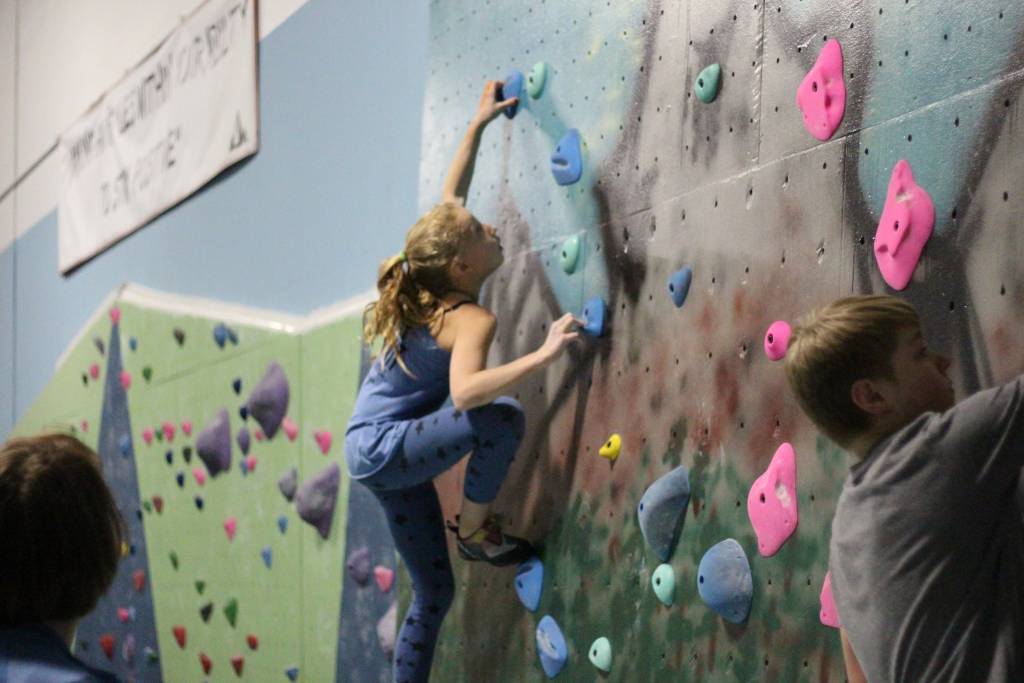Athletic development in youth is about more than just the sport itself—it’s a foundation for lifelong health, personal growth, and emotional well-being. Therefore engaging in sports and physical activities at a young age helps develop essential life skills beyond the gym, field, rink, track, or crag. Here are five key benefits of youth athletic development and why it’s so essential for a child’s overall growth.
1. Building Life Long Healthy Habits
Sports and physical activity help children develop habits that promote long-term health. When kids engage in regular exercise they experience the benefits of:
- Improved cardiovascular health
- Stronger muscles
- Maintaining a healthy weight
- Reducing the risk of chronic illness
So beyond the physical benefits, youth sports instill the importance of staying active, eating well, taking care of their bodies, and working hard towards their goals. When these habits are introduced at a young age they often continue into adulthood, leading to a healthier and more active lifestyle overall.
2. Handling Competition and Conflict
In athletics, children naturally encounter both competition and conflict. Learning how to manage these situations positively helps them develop essential life skills such as:
- Managing emotions and frustrations
- Respecting opponents, coaches, referees/judges and teammates
- Problem solving under pressure
- Understanding that winning isn’t everything
Sports teach kids that competition is not just about winning but about self-improvement, effort, and learning from mistakes. These experiences help children become more resilient in facing challenges in school, relationships, and future careers.

3. Boosting Self-Confidence and Resilience
One of the greatest benefits of youth sports is the boost in self-confidence. So as children develop new skills, improve their performance and contribute to their team they gain a sense of accomplishment. This confidence helps them:
- Overcome self-doubt
- Set and achieve goals
- Develop a strong work ethic
- Handle setbacks with a positive mindset
Learning to navigate challenges in sports—whether it’s recovering from a loss, improving a skill, or bouncing back from an injury—builds resilience. This ability to persevere carries over into all areas of life, helping kids grow into confident capable adults.
4. Improves coordination and functional movement
Athletic development helps children refine their motor skills and overall movement patterns. Sports require:
- Balance and stability
- Hand-eye coordination
- Agility and quick reflexes
- Proper movement mechanics
These skills enhance a child’s ability to perform everyday activities efficiently and safely, reducing the risk of injuries. Functional movement patterns developed through sports contribute to better posture, flexibility mobility, and overall physical performance.
5. Strengthen Emotional Wellbeing
Physical activity is closely linked to mental and emotional health. So Youth athletic development supports emotional well-being by:
- Reducing stress and anxiety
- Increasing endorphin release (happy hormones!)
- Building social connections and friendships
- Providing a sense of belonging and self-worth
Importance of Athletic Development in Youth
Being a part of a team or building other related relationships in sports helps children develop a strong support system, boosting their overall mood and mental resilience. The sense of accomplishment from achieving athletic goals contributes to a positive self-image.
Youth athletic development is about much more than just sports—it’s about building strong, confident, and well-rounded individuals. From fostering lifelong healthy habits to developing emotional resilience, the benefits can be seen far beyond their athletic performance. Encouraging kids to participate in athletics sets them up for success in all areas of life, helping them grow into healthy confident, and adaptable adults.

